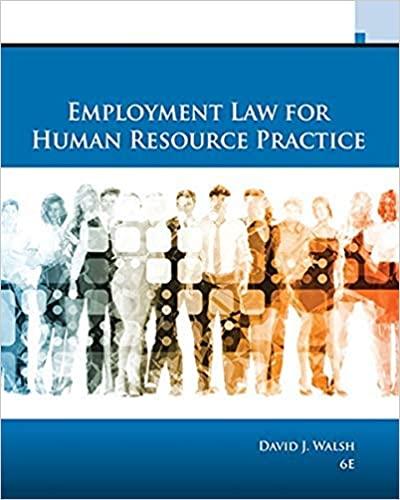A female account executive at a financial services firm filed a charge of sexual harassment with the
Question:
A female account executive at a financial services firm filed a charge of sexual harassment with the EEOC. When the charge was filed, the chief executive officer of the firm forwarded a cop of the employee’s complaint to the general manager who was the alleged harasser, adding that he should “Call me before you explode.” The general counsel for the company initially advised top managers that substantial damages were unlikely in the case because the employee did not have the resources necessary for a protracted legal battle with the company. It took the EEOC more than a year to seriously delve into her case, but the investigators eventually contacted the company demanding documents and interviews with the involved parties. At this point, the company’s concerns over the case heightened. In the firm’s next Securities and Exchange Commission (SEC) filing, the ongoing case was noted for the first time, including the identity of the woman. In the past, the firm had always refrained from identifying individual plaintiffs in these public SEC filings. The information that she had filed a discrimination charge against the firm was now readily available online. The woman continued to have difficulty finding a new job, and she was told by one recruiter that the information about her charge filing probably rendered her “unemployable” in the financial services industry. Does the woman have a viable retaliation claim? Why or why not? (Greengrass v. Int’l Monetary Sys. Ltd., 776 F.3d 481 (7th Cir. 2015)).
Step by Step Answer:






